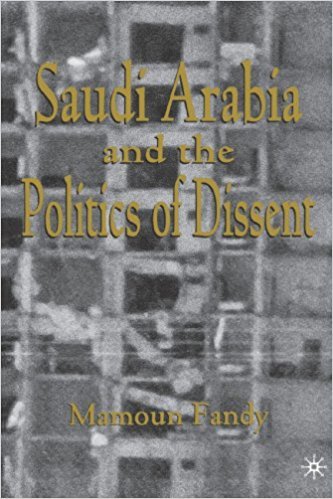Description
Saudi Arabia and the Politics of Dissent
Few books on Saudi Arabia deal with primary sources in examining internal Saudi dissent. In contrast, Saudi Arabia and the Politics of Dissent relies on field work and the analysis of more than one hundred taped sermons by Saudi Islamic activists, examining their personal backgrounds, their rhetoric, and their strategies. Mamoun Fandy traces the evolution of Islamic opposition in Saudi Arabia, focusing on the Gulf War and its aftermath and scrutinizing the works of Safar al Hawali and Salman al-Auda. He also documents the history of the Shi’a Reform Movement and its leader, Sheik Hassan al-Safar, of Mohammed al-Mas’ari and his Committee for the Defense of Legitimate Rights, of Sa’d al-Faqih and the Movement of Islamic Reform in Arabia, and finally the radical Osama bin Laden and his organization.
By analyzing the Saudi opposition’s use of modern technologies of communication and discussing the ways in which supposedly fundamentalist thinkers have been influenced by global debates and events, Saudi Arabia and the Politics of Dissent contributes significantly to the theoretical debate on domination and resistance in the current age of globalization and postmodernity.
While the literature on Saudi Arabia is extensive, relatively little has been written on Saudi opposition figures and groups. Helping to fill the gap is this well-researched, intelligent and readable book by Mamoun Fandy, professor of politics at Georgetown University’s Center for Contemporary Arab Studies.
The book’s focus is on Islamic rather than secular opposition groups. As the author points out, the debate between the Islamists and liberals in Saudi society has been underway since 1987, but in the wake of the Gulf War, it has been the Islamist groups that have been the most numerous and the most sustained in their criticism of the government. Fandy analyzes six opposition figures and movements: Sheikh Safar al-Hawali and Salman al-Auda, two preachers whose sermons criticizing the Saudi regime have become widely known through distribution of cassette tapes; Muhammed al-Masaari and the Committee for the Defense of Legimate Rights (CDLR), based in London, which pioneered the use of “post-modern” communications (the fax machine and Internet) to get its message across to followers in the kingdom; Saad al-Faqih and the Movement for Islamic Reform in Arabia (MIRA), a split-off from the CDLR that is also based in London; Usama Bin Laden and the Advice and Reform Committee, the one opposition movement that is activist in nature; and Sheikh Hassan al-Saffar, spiritual leader of the Shia Reform Movement.
 العربية
العربية  English
English 




